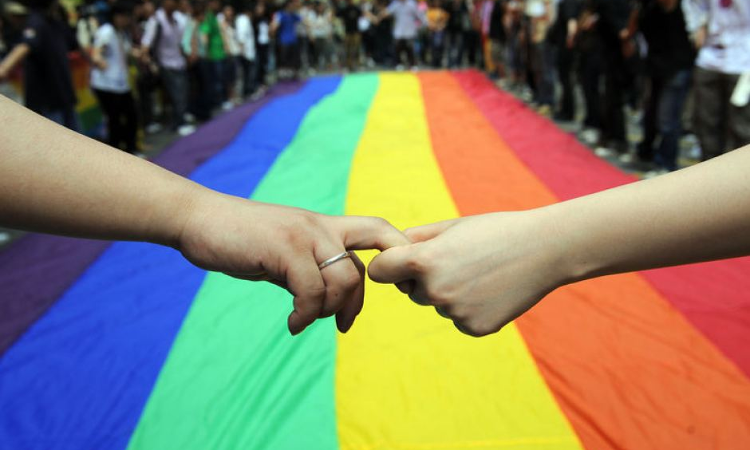- Home
- /
- High Courts
- /
- Madras High Court
- /
- Supreme Court May Not Have...
Supreme Court May Not Have Legalised Same-Sex Marriage But Such Couples Can Very Well Constitute A Family: Madras High Court
Upasana Sajeev
4 Jun 2025 3:49 PM IST
The Madras High Court recently observed that the concept of “family” has to be understood expansively and marriage is not the sole mode to start a family. The bench of Justice GR Swaminathan and Justice V Lakshminarayan observed that while the judgment of the Supreme Court in Supriyo @ Supriya Chakraborty Vs Union of India might not have legalised same sex marriage, such couples...
The Madras High Court recently observed that the concept of “family” has to be understood expansively and marriage is not the sole mode to start a family.
The bench of Justice GR Swaminathan and Justice V Lakshminarayan observed that while the judgment of the Supreme Court in Supriyo @ Supriya Chakraborty Vs Union of India might not have legalised same sex marriage, such couples could very well form a family.
“The expression “family” has to be understood in an expanded sense….While Supriyo @ Supriya Chakraborty Vs Union of India (2023 INSC 920) may not have legalised marriage between same sex couples, they can very well form a family. Marriage is not the sole mode to found a family. The concept of “chosen family” is now well settled and acknowledged in LGBTQIA+ jurisprudence. The petitioner and the detenue can very well constitute a family,” the court said.
The bench also expressed discomfort in associating the word “queer” with homosexual persons. The court said that the sexual orientation of a homosexual person must be perfectly normal for him/her/them and wondered why it should be associated with the word “queer” which, by definition, meant “strange or odd”.
“We feel a certain discomfort in employing the expression “queer”. Any standard dictionary defines this word as meaning “strange or odd”. Queering one's pitch means spoiling the show. To a homosexual individual, his/her/their sexual orientation must be perfectly natural and normal. There is nothing strange or odd about such inclinations. Why then should they be called as queer?” the bench asked.
The bench was dealing with a habeas corpus petition filed by a woman. The woman had claimed that the detenu's father had been detaining her against her will and thus approached the court to set the detenu at liberty.
During the hearing, the detenu was produced before the court accompanied by her mother. While interacting with the judges, the detenu's mother claimed that the petitioner had led her daughter astray and even made her a drug-addict. The mother thus claimed that her daughter required counselling and rehabilitation.
The court, on interacting with the detenu, realised that she was a lesbian and was in a relationship with the petitioner. The detenu informed the court that she had been forcibly taken to her home, beaten, and forced to undergo certain rituals to make her “normal”. She also informed the court that she wished to go with the petitioner.
The court noted that our society was still conservative despite the decision in NALSA case and Navtej Singh Joharcase. The court thus understood the feelings of the mother who might have wished her daughter to be normal, get married and settle down like a heterosexual woman. However, the court, though in vain, made an effort to make the mother understand that her daughter, being an adult, was entitled to choose her own life.
Highlighting the Yogyakarta principles on the application of International Human Rights Law in relation to Sexual Orientation and Gender Identity which was recognised in the NALSA judgment, and other decisions of the Supreme Court, the court observed that the couple could very well constitute a family. The court also took note of the decision of the Madras High Court which approved a “Deed of Familial Association” to recognise the civil union of LGBTQIA+ persons.
In the present case, the court also noted that the jurisdictional police had not respondent to the SOS messages sent by the petitioner. The court highlighted that the police had behaved in an insensitive manner, forcing the detenu to go with her parents. The court also noted that the department had not taken any action, even when the petitioner made representations complaining about the illegal detention.
The court censured the police for their inaction and emphasised that the police have a duty to expeditiously and appropriately respond whenever such complaint were received from members of the LGBTQIA+ community.
“We censure the rank inaction on the part of the Police and the insensitivity shown by them. The Yogyakarta Principles affirm the right to security of the person concerned. When there is a right, there has to be a correlative duty. We hold that the Government officials, in particular the jurisdictional Police, have a duty to expeditiously and appropriately respond whenever complaints of this nature are received from the members of the LGBTQIA+ community,” the court said.
Considering the detenu's wish to go with the petitioner, the court closed the plea and restrained the detenu's family from interfering with her personal liberty. The court issued a continuing mandamus to the police to afford adequate protection to the detenu and the petitioner as and when required.
Case : MA v Superintendent of Police
Counsel for the Petitioner: M/s. M. A. Mumtaj Surya
Counsel for the Respondent: Mr. E. Raj Thilak Addl. Public Prosecutor
Citation: 2025 LiveLaw (Mad) 188



